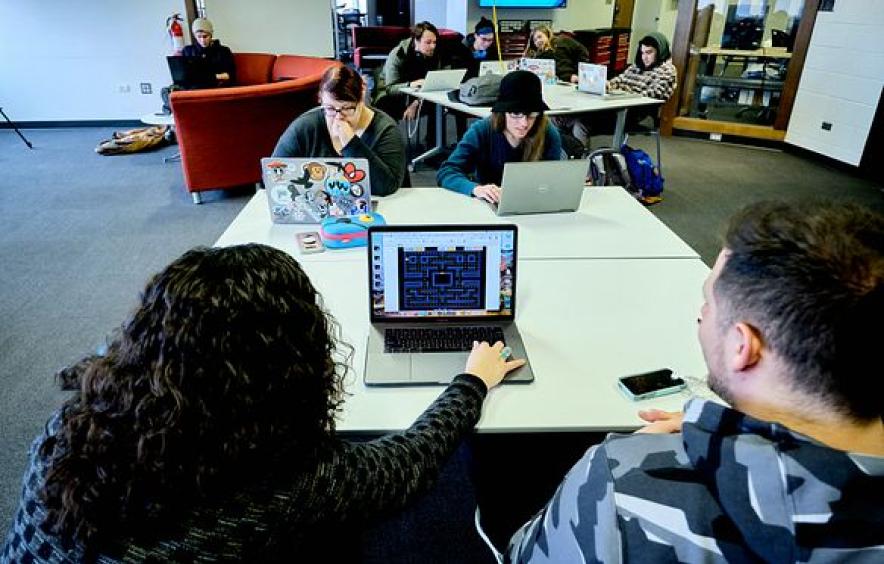The BFA in emergent digital practices (EDP) lets you explore new artistic and designerly enabled by the rise of digital media. In this major, you'll push the boundaries of how art is created, presented and used as a tool for the benefit of society.
You'll work in a range of disciplines and explore advanced visual design, interactive media, digital fabrication and sonic arts. A historical examination of art will give you the background you need to harness the full potential of these technologies.
The BFA focuses on the creation and performance of your own original works, and emphasizes community engagement in galleries, museums, festivals and other public spaces.
Graduates go on to careers in areas such as experience design, creative coding, game design and arts management. Since you can tailor your degree with specialized electives in subjects such as 3D modeling and advanced video art, there are a wide range of tech and artistic careers ahead.
Featured Courses
EDPX 3120
Making Critical Games
About this Course
Students are challenged to create games (board, physical, video-, and hybrid games) that respond to social conditions in a critical manner while still maintain an essential ludic quality. Public good and civic engagement projects are welcomed. The course may be repeated with instructor permission when projects vary. Specific topics will very each time the course is offered, and the course is repeatable up to 3 times.
EDPX 3610
3D Animation
About this Course
This course examines animation within virtual 3D environments. Starting with basic concepts, the course develops timing and spacing principles in animation to support good mechanics. They also serve as the basis for the more advanced principles in character animation as the class processes.
EDPX 3800
Topics in Digital Making
About this Course
This course provides an in-depth exploration of the emergent digital practices of a technology or method for making (for example, wearables; interactive projections; augmented reality; immersive multi-channel soundscapes). Students learn the social/historical context of the particular method and consider the role and function their creations serve when it becomes public.


